The three most important encounters in the history of Christianity, which have had a big impact in its development, have been: firstly with the Judaic world, secondly with Hellenistic philosophy and thirdly with the Roman Empire.
Ethics, also called moral philosophy, has been a subject on which philosophers have pondered and wrote about for centuries. It is concerned with working on concepts of right and wrong behaviour. Western Philosophy originated in the Hellenistic world. When philosophy meets with Christianity, it results in the subject of moral theology: “living out our Christian beliefs as they affect our decision-making is called morality“.[1]
In this essay we are looking at how, during the twentieth century, Catholic moral theology switched emphasis from the law-based approach to morality (deontological approach) to the dialogical covenant-based approach (teleological approach). However, through a historical excursus, we also want to show that these two tendencies, Deontology and Teleology, have always been there, hence, the switch that happened particularly during and after the Second Vatican Council, was still based on the tradition of the Church itself.
Additionally we shall mention that some authors consider these to be not the only two approaches to ethical Catholic decision-making; they argue that a “third way” exists and has already been used and applied within Catholicism.
There are, and there have been, different ethical systems; some have been developed within the Hellenic world and are based on different philosophical schools, more ancient than Christianity itself. Christianity has never identified itself with any specific ethical system, on the contrary it has embraced different thoughts, with one of them that might have been predominant in a certain period.
Two systems developed in the Western philosophical thought, have been idealism and realism. These have brought us, within Catholic morality, to the deontological and teleological approach respectively. Let us confront them philosophically: idealism sees a dualism between soul and body while realism sees a unity between matter and spirit; if idealism sees the exercise of virtue as the main criterion of morality, realism considers happiness as the moral imperative; furthermore idealism sees the primacy of will and duty whilst realism sees the primacy of understanding and knowledge.[2]
These two ethical views are very ancient; we can trace them back to the IV century BC. Idealism springs from Plato († 347 B.C.) in works such as Convito and Phedro, it is then taken on, in the Christian thought, by St. Augustine (430 AD) De libero arbitrio, and then advanced by Peter Lombard († 1160) Libri quattuor sententiarum, by St Bonaventure († 1274) Itinerarium mentis in Deum, by William of Ockham († 1349) with his Nominalism, by Pius IX († 1878) Syllabus, and by the philosopher Max Scheler († 1928) and his theory of values.
O’Connel writes about Augustine’s “roots in Platonic philosophy” and of the risk of “dualistic excesses” that this philosophy can lead to but, on the other hand, O’Connel reckons that “Platonism also offers the possibility of grounding a richer, more poetic and mystical approach to theology.”[3]
Realism instead stems from Aristotle († 322) in works such as Nicomachus’ ethic, and then it is taken on, in Christian thought, by Peter Abelard († 1142) in Ethica seu scito teipsum and in Sic et non. Soon after those times there have been a couple of Muslim thinkers, Avicenna and Averroes, that have had a big impact on European culture. Realisms is then embraced by Saint Albert the Great († 1280) and St Thomas Aquinas († 1274), Summa Theologiae, Francisco Suárez († 1617) who, with other Spanish thinkers, developed Probabilism; Cardinal J.H. Newman († 1890), Essay on the Development of Christian Doctrine. This philosophical strand was also the one embraced at the II Vatican Council (1962-65) for the modernized moral theology.
It could prove problematic trying to label some of the thinkers above listed: first of all because having adopted terms and concepts from one conceptual genre, analytic philosophy, into a drastically different genre, Catholic moral theology, one needs to understand that there cannot be a perfect fit. Pope John Paul II’s encyclical Veritatis Splendor tells about the misunderstandings of the nature and purpose of normative ethics and methodology that originates from this.
Secondly, the use of the term “deontological” dates from the 20th century[4] and, therefore, originated after the time the mentioned scholars wrote; similarly “teleology” was coined by C. Wolff at the beginning of 18th century.[5] Thirdly because arguments and thoughts are more complex and might not be easily categorised: for instance in the writings of Thomas Aquinas we can find both approaches used by him (and even those that speak of three approaches see all of them based on Aquinas’[6]). In addition, if most texts tend to mention these two Christian moral strands, other authors mention instead three strands, adding one in between the deontological and the teleological; the name given to this third varies, as it varies its method of moral deliberation.
Let us try do define further these terms: the word “deontological” comes from the Greek deon, meaning obligation, necessity, that which is binding. Deontological theories tell people what moral duties are. The word “teleological” derives from the Greek word telos, meaning end, goal, or purpose. Hence to be moral, one needs to behave in order to attain the ultimate goal (of unity with God). Conversely deontological systems hold that the moral worth of an action lies in conforming to duties and rules, as opposed to considering the consequences of what you do.[7]
In short: the Catholic Church heavily based its moral theology on Aquinas’ thought; however although the doctor of the Church “situated moral theology within the context of a comprehensive treatment of the whole of theology”[8] over time, and particularly after the counterreformation, starting with the Council of Trent, “moral theology was isolated from spirituality and Scripture. It was only concerned with law – revealed, natural, canon and civil.”[9]
Hence, through the centuries, moral law had become highly “legalistic” with concerns for certainty in order to check whether the individual had sinned and making sure he was given the appropriate penance. After the French Revolution, and with illuminist ideas brought around by Napoleon Bonaparte’s conquests, in a changed world and with a different Church (whereby there was a clear separation between Church and State and then with the disappearance of the great power and autonomy of the French and German episcopates[10]) the renewal of moral theology began and “one of its earliest manifestations was at the University of Tübingen, in Germany”[11] in the 1830s.[12]
This renewal continued with the work done by the Second Vatican Council with “a shift away from legalism”. Two of the most significant documents are the Dei Verbum, which puts a different emphasis on Divine Revelation and Gaudium et Spes. In the latter, the “shift away from certainties suggests that moral norms should be applied tentatively with a new openness to revision, since today’s complex world reveals new questions, and new problems.”[13]
Harris notes that George Regan recognized seven points of difference of approach by contrasting the “after Council” with the old manuals for the clergy:[14] the new approach is rooted in the Christian mystery, is centred upon Christ, feeds on Scripture, emphasizes life-long conversion, is communitarian, is positive in tone and it is ecumenical in its search for inspiration.
There has indeed been a change in emphasis from the law-based (deontological) approach to morality, which was predominant until Vatican II, to the dialogical covenant-based (teleological) approach that was brought into vogue in 1960s. However, as we saw, these strands have always been there in the Hellenistic and European philosophical thought and, additionally, it would be disingenuous to think that by the end of the Council the deontological approach had disappeared. Quite the opposite: the “deontological approach of [Germain] Grisez in particular has shaped the moral teaching of Pope John Paul II”[15] and he has tried a synthesis of the two schools of ethical thought,[16] in documents such as Veritatis splendor and also the new Catechism of the Catholich Curch (1992), which include arguments and indications originating from both strands.
Some would argue that thinking of only two approaches might be an oversimplification. Proportionalism is a name given, by certain authors, to the “third way approach” within Catholic Church thinking;[17] Brian Berry prefers to call it “revisionism”. In his interesting article on the “three main approaches to ethical reflection”, he argues that Roman Catholic theologians, since Vatican II, have been using three approaches: deontology, revisionism, and virtue ethics.[18]
Pope John Paul II, in Veritatis Splendor tells us that Proportionalism and Consequentialism are variations of the teleological ethical theories (as both are act-centred) which is the same opinion of Sowle Cahill who is critical of some authors, such as McCormick, who “have tried to account for non-utilitarian forms of teleology by calling them “mixed” teleology and deontology”; she then adds “it seems more fruitful to construe teleology and deontology as distinct models of moral thinking, but not as opposed necessarily”.[19]
In this essay we have seen how moral theology has changed, particularly while approaching the twentieth century. Theologians are still in search for new formulas in a time when O’Connell argues “no new intellectual synthesis has captured the imagination and satisfied the searching of the whole Church. Instead there is a situation of disagreement and, to a certain, unavoidable, extent, confusion. A feeling of historic transition prevails.”[20]
We should expect that moral theology will shift again within this century as, firstly, it has lagged behind the rest of theology for some time and still has ground to catch up and, secondly, as new scientific discoveries and new techniques change, for example, the way human beings are able to manipulate nature.
Essay by: Volfango Rizzi
[1] Richards (2002): 88.
[2] Pajer (2000): 341.
[3] Timothy E. O’Connel in Hayes and Gearon (1998): note 6 at page 392.
[4] Outside the realm of religion, the first great philosopher to define deontological principles was Immanuel Kant, the 18th century German founder of critical philosophy; in the 20th century the British moral philosopher David Ross attempted at improving Kantianism.
[5] Marinoni, Cassinotti, Airoldi (1997): 198.
[6] As in the conclusion of the online article by Brian Berry.
[7] Hodder: 118-119.
[8] Harris (2019): 13.
[9] Richards (2002): 94.
[10] Lemmonnier (1981): 381-383.
[11] O’Connel in Hayes and Gearon (1998): 400.
[12] Harris (2019): 14.
[13] Richards (2002): 94.
[14] George Regain in New Trends in Moral Theology 1971 as read in Harris (2019): 15.
[15] Berry (1999). Article first appeared in the March 1999 issue of Catholic Practice, the E-Magazine of PastoraLink, which is no longer online but that can be accessed here: http://theolibrary.shc.edu/resources/ligouri_berry.htm
[16] Pajer (2000): 341 and 344.
[17] Hodder Education: 133-137.
[18] Berry (1999).
[19] Sowle Cahill (1981): 602.
[20] O’Connel in Hayes and Gearon (1998): 402.
Essay by: Volfango Rizzi

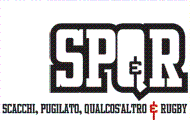


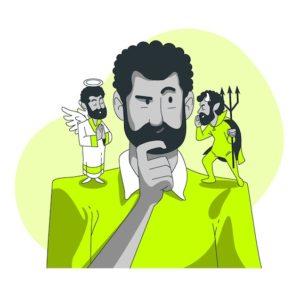
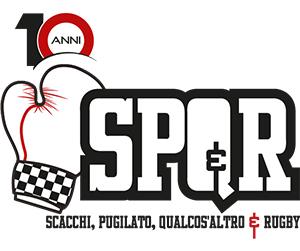


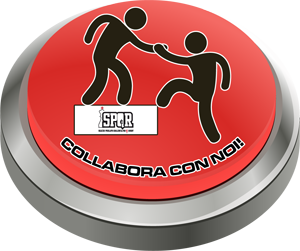
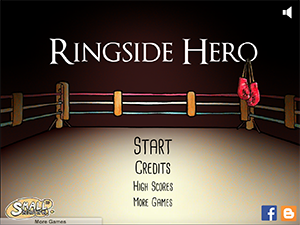
 è una rivista bimestrale, che tratta esplicitamente di scacchi, rugby, pugilato e scacchi-pugilato.
Include, inoltre, la rubrica “altro”, in cui, in aggiunta a temi come l’aromaterapia e i giochi, viene offerta la
possibilità di sviluppare, in maniera coinvolgente, vari argomenti d’interesse generale.
è una rivista bimestrale, che tratta esplicitamente di scacchi, rugby, pugilato e scacchi-pugilato.
Include, inoltre, la rubrica “altro”, in cui, in aggiunta a temi come l’aromaterapia e i giochi, viene offerta la
possibilità di sviluppare, in maniera coinvolgente, vari argomenti d’interesse generale.

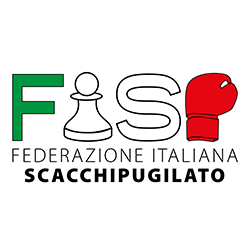
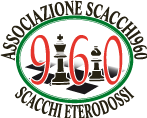





COMMENTI RECENTI